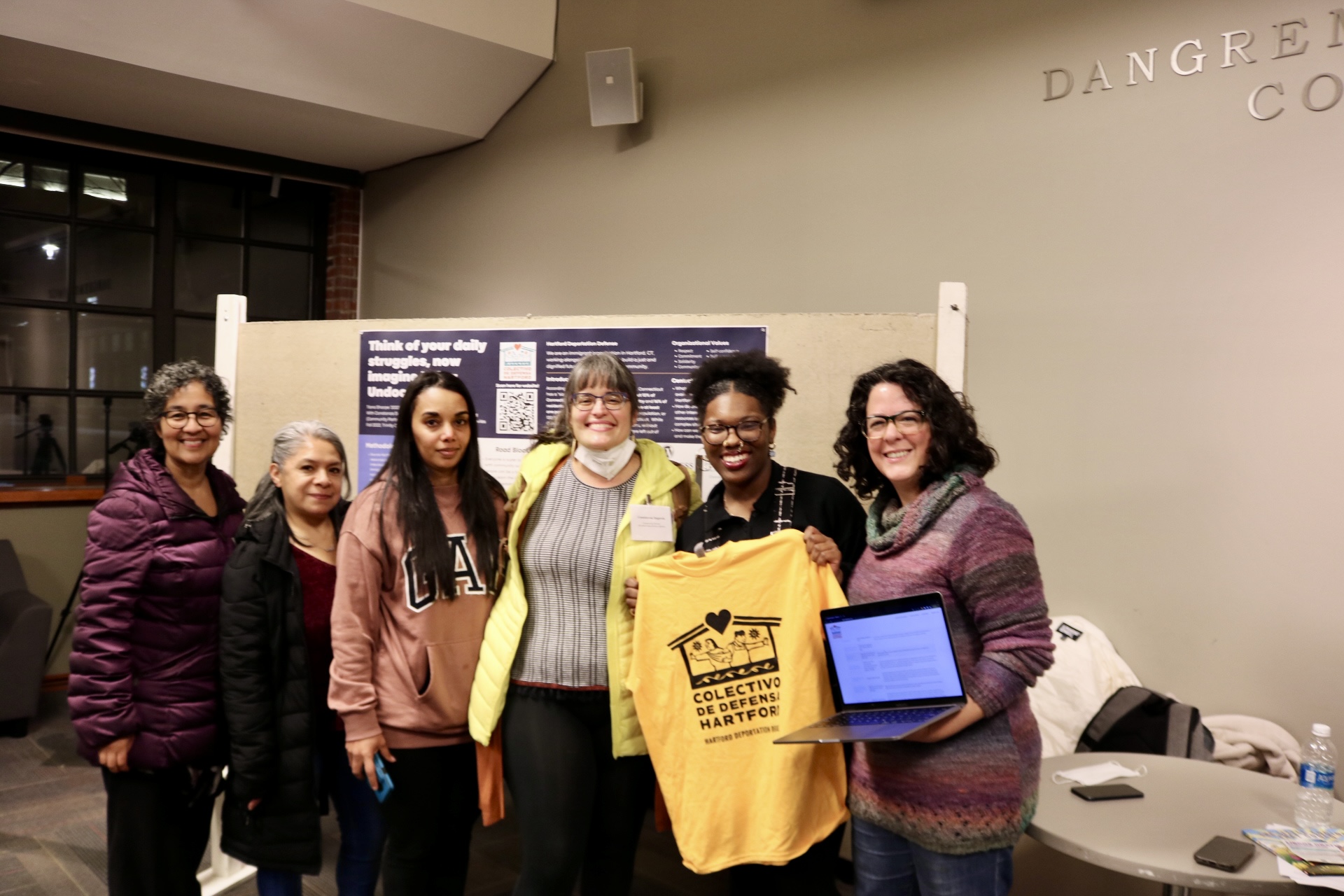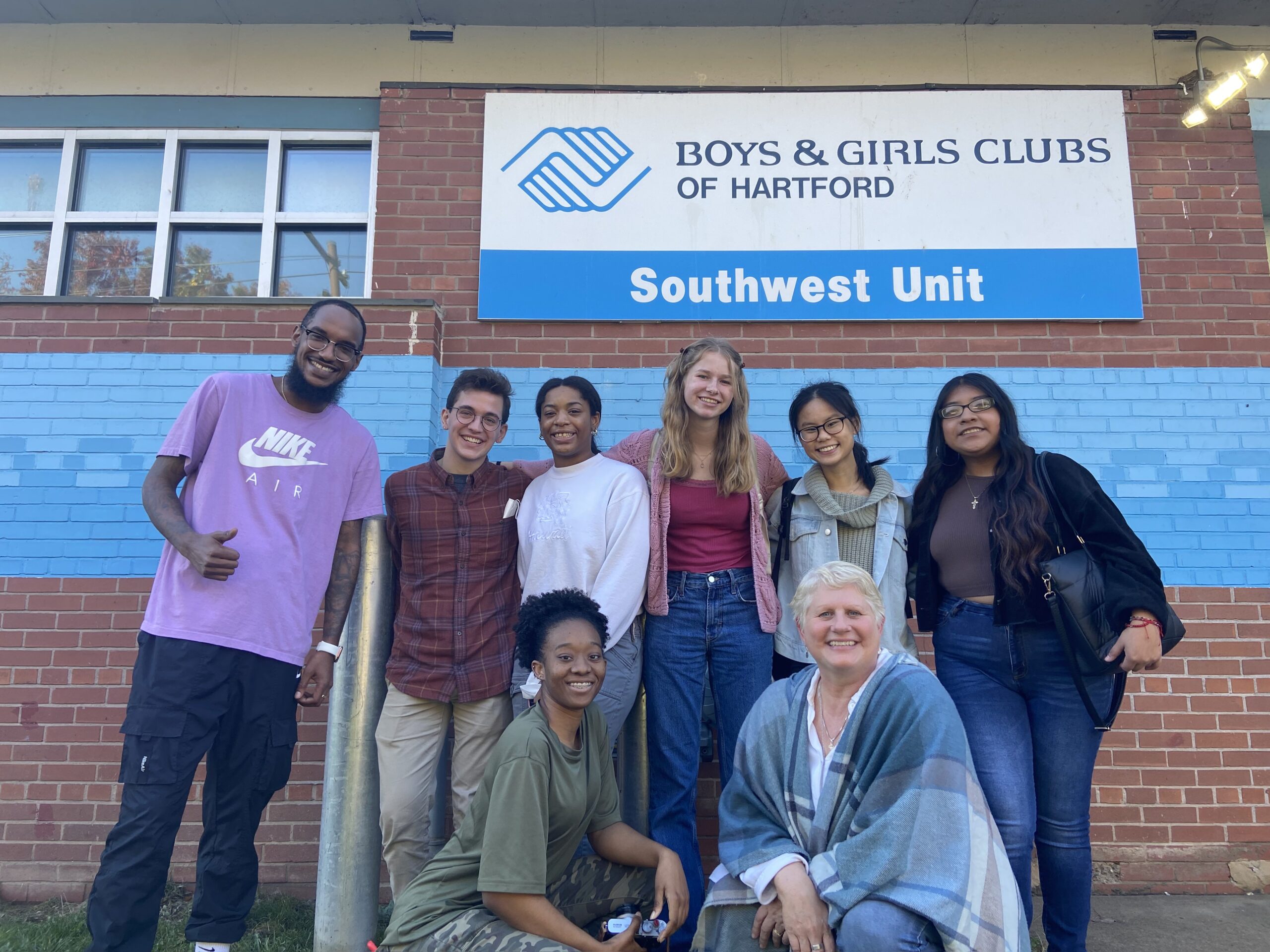Urban Engaged Learning
The experiential certificate in Urban Engaged Learning enables students to develop skills in urban-focused research, engagement with community partners, and independent project management. The certificate consists of two academic credits and one co-curricular experience. The academic credits are earned through the Liberal Arts Action Lab. Students who participate in the Lab enroll in two, one-credit courses completed in one semester: (1) a research methods course and (2) a course centered around an applied research project. The co-curricular experience consists of an urban-focused research or engagement project. Resources for these projects are available to students through grants from the Center for Urban and Global Studies and Center for Caribbean Studies, or the Center for Hartford Engagement and Research’s Community Learning Research Fellows. An independently formulated and executed urban-focused research or engagement project that takes place outside of these programs will be considered on a case by case basis.
Credit 1:
LAAL 200 – Action Research Methods in Hartford
What is the role of academic research in social change? How can students and community groups collaborate effectively to co-create, implement, and use research projects to solve social problems? In this course, students will study the theories and methods of interdisciplinary action research. Emphasizing ethical collaboration, students will learn research design strategies, methods, tools, and research tools in order to work with community partners to solve pressing problems. Students will learn to use a variety of statistical, geographic, and interview data to answer questions, make recommendations, and tell stories about the issues that are most relevant to Hartford.
Credit 2:
LAAL 201: Hartford Research Project
In this project-based class, students and faculty fellows will work in teams with Hartford community partners to research social problems and develop solutions. The projects we undertake are defined by Hartford community partners. Sample projects may include: analysis of mortgage lending disparities, focus groups on civic engagement, neighborhood public history projects, and urban development case studies. Students will learn and apply project management techniques, work collaboratively with community groups to develop research questions, select appropriate methods, and communicate results with media appropriate various audiences.
Credit 3:
An independent, urban-focused research and/or engagement project.
The project could take place through a Center for Urban and Global Studies (CUGS) grant, a Center for Caribbean Studies (CCS) grant, Community Learning Research Fellows (CLRF), or Public Humanities Collaborative (PHC). An independently formulated and executed urban-focused research or engagement project that takes place outside of these programs will be considered on a case-by-case basis.
For more information, students should contact Professor Gabby Nelson.



